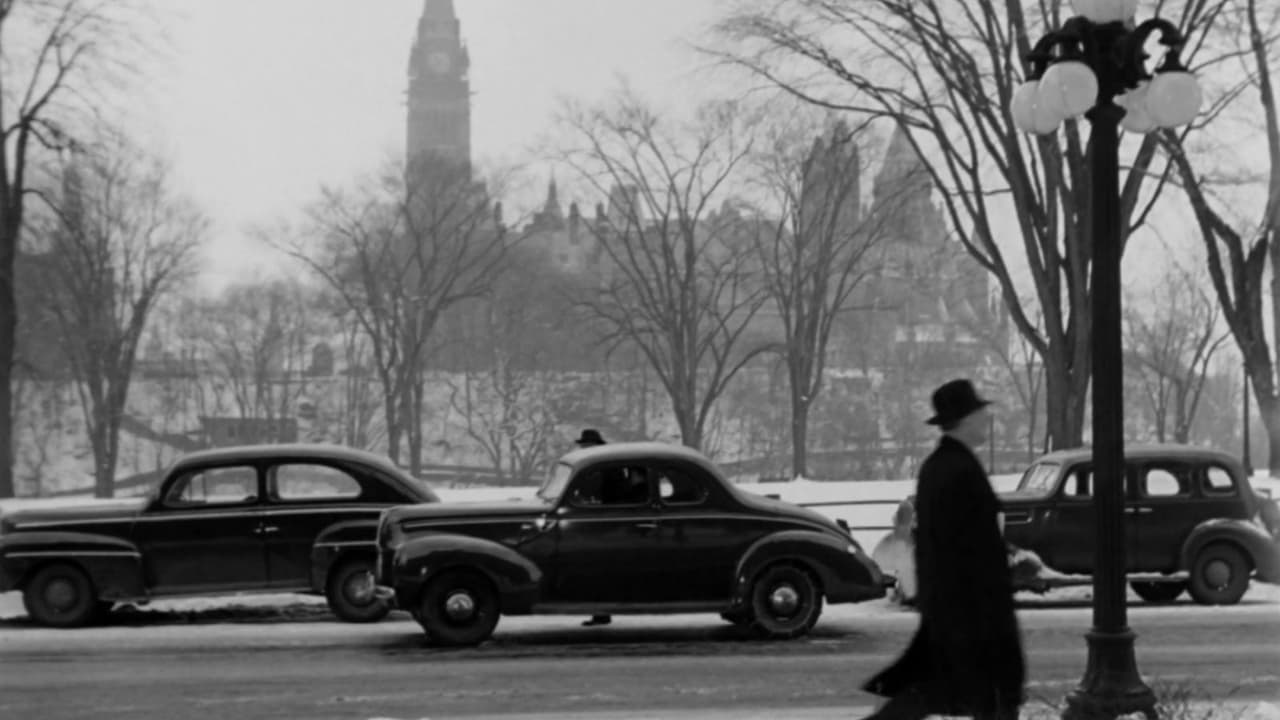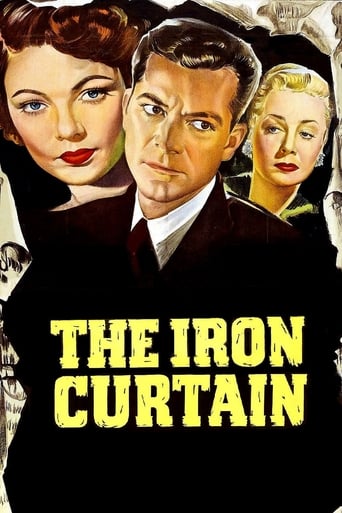

Good start, but then it gets ruined
... View MoreAn Exercise In Nonsense
... View MoreAlthough it has its amusing moments, in eneral the plot does not convince.
... View Moren my opinion it was a great movie with some interesting elements, even though having some plot holes and the ending probably was just too messy and crammed together, but still fun to watch and not your casual movie that is similar to all other ones.
... View MoreFor all of the spy and espionage thrillers that have been made into movies, people today may be surprised to learn how old the American secret service is – or rather, how young it is. The CIA is the youngest of all the intelligence agencies of NATO nations. It wasn't formed until late 1947. Yet more movies since the last half of the 20th century have been made about or with CIA involvement in the stories than about any other intelligence organization or other government group. Right behind the CIA, with nearly as many movie numbers is the CIA's elder cousin, MI6 of Great Britain. Still, secret intelligence of the espionage type must have been an anathema to North Americans even through two world wars. That point springs from the details of the major Soviet Union espionage scandal that shocked Canada, the U.S. and the rest of the world in 1946. Even growing up during and after World War II, I don't recall ever having heard it being discussed or written about soon thereafter. I do recall watching a TV game show in the mid-1950s in which I first heard the name Gouzenko. But I didn't know about this movie until recent years."The Iron Curtain" was made in 1948. It is the true story, based on the actual events, that led to the world's discovery of the covert espionage activities of the Soviet Union. It was this discovery that some sources label as the beginning of the Cold War according to the Encyclopedia Britannica. Yet, it may never have been known for years or decades to come had it not been for one person – Igor Gouzenko. This movie is his story, from the time he arrived in Canada from Moscow in early 1943 until he defected in Ottawa on Sept. 5, 1945. Gouzenko was a cipher clerk who was loyal to the U.S.S.R. until that time. His wife had arrived from Moscow to join him and their first child was soon born. When he was due to be sent back to Moscow, he decided to defect and take secret espionage files with him. The movie shows how harrowing was his move because of the reluctance of Canadian government offices to believe him, or even to show interest. He even went to a major newspaper and was turned away. How he came to be successful almost seems like a fairy tale. But this is the story on film. Dana Andrews plays Gouzenko superbly. Gene Tierney is his wife, Anna (Svetlana). The supporting cast are all very good in the roles of the top Soviet embassy officials and Canadian Communist party spies. These included Col. Ilya Ranov, head of the Soviet Secret Police (later KGB); Col. Aleksandr Trigorin, chief Soviet military attache; Maj. Semyon Kulin, his deputy; John Grubb (aka "Paul") who established the Canadian Communist Party in 1920 and headed it's espionage activities. While the Soviet embassy officials couldn't be prosecuted, some 39 other civilians and military in government jobs were brought to trial, and 20 convicted of sentences from five years to life in prison. Gouzenko and his family were hidden and protected by the Royal Canadian Mounted Police and later were settled in a home with new identities in a Toronto suburb. He later wrote two books and appeared on TV shows with his head hooded to preserve his identity. He died in 1982 and Svetlana died in 2001. In 2003 Ottawa erected a memorial and in 2004 the Canadian government erected a memorial plaque. Some of the names and details in this film have been changed, but it mostly is an accurate portrayal of Gouzenko and his defection. The film appears dark and somber throughout. It was made in black and white and reflects the conditions under which Gouzenko worked and lived at the time. The movie was shot in the actual locales, and the prologue on the film states that all the documents in the film were the authentic items form the real event. While this film could hardly be considered entertaining, it surely is interesting. It provides a good look at the serious espionage activities of the world's largest Communist power and its threat to democracy and peace. On his arrival in Ottawa in 1943, Gouzenko was grilled by the Soviet Secret Police chief, to test his phony credentials. His opening statement is an example of the indoctrination that the Soviets put their own people through. It's a fitting way to end my comments. Gouzenko, "I am now in a foreign country and must always be alert against enemies. I must be careful of all manner of acquaintanceship. I must not engage in cordial conversation with any foreigner whatsoever. Never borrow money from a foreigner. In my apartment, I must be respectful to neighbors but make no friends. I must never permit myself to be more drunk than either my guests or my host. A sober brain, a firm tongue, and alertness. These things must always be with me when I'm with foreigners."
... View MoreNot a very good film, to be honest... For your pleasure it is a propaganda film, if you enjoy that or double standard. Due to its origin, it is full of "patriotic" speeches disguised as dialogues, exaltation of the American notion of democracy, dark portraits of Soviets' Western allies, warnings of the "Red Menace" that sound insolent when you see how light-heartedly the H-bombing of Japan is assumed, and so on... William Wellman directs all the tension-filled action with his usual skill, and actors are rather restrained in their Soviet portraits, but in the end not even the self-righteousness of the project can hide its true political agenda.
... View MoreClearly, this was a TCF prestige production. Impresario Sol Siegel produced, auteur William Wellman directed, popular leads Andrews and Crain starred, while Canadian locations were as accurate as possible. Based on a true story of Soviet espionage, the framing lends genuine authenticity. Not too much exciting happens until the last 20-minutes, when defector Gouzenko tries to get skeptical Canadian authorities to believe his story. That must have been hair-raising, his life on the line.But make no mistake, the narrative is turned into propaganda, sometimes crude, sometimes slick. It's not a question of basic facts. Those I take to be true. Instead, it's a question of stagecraft, namely, how the facts are presented. In short, it's not the 'what' but the 'how'. Note how Soviet officials are presented by the movie makers. How they apparently hate full light— seemingly only to exist in noirish shadow; how they never smile, apparently having no inner feelings; how they only speak in a mechanical manner, apparently having no thoughts of their own; and how they apparently don't love their wives, Gouzenko's fidelity marking him as a potential defector. Indeed, this is Hollywood's attempt to turn on a dime, yesterday's ally becoming today's enemy. In short, TCF had to take up the Cold War too, of which this film was a key entry. Speaking of spying on allies, we might ask Germany's current chancellor Angela Merkel how she likes having her phones bugged by our own NSA. Understandably, it created quite a diplomatic stir (Google 'merkel and spying'). My point is not to defend the Soviets specifically. Rather, it is to point out an important part of cinematic propaganda. Namely, that it's not sufficient to present the basic facts, as some folks believe; it's also how those facts are presented, and here the manner is clearly propagandistic. Soviet stereotypes are created that would endure. My larger point is to beware of any effort to de-humanize an enemy no matter how detestable they may seem. For such an effort can also be turned around on us.
... View MoreDana Andrews is Igor Gouzenko, a Russian spy in Canada in "The Iron Curtain," a 1948 film based on a true story. Andrews plays a Russian during and after World War II who is sent to work as a code clerk for a ring in Canada; once the bomb is dropped on Hiroshima, the Communists become particularly interested in documents pertaining to it. Eventually his wife (Gene Tierney) joins him and tells him that she is pregnant. With the birth of his son, and the disillusionment of one of the ring (Eduard Franz), whose father was a great leader, Gouzenko slowly begins to realize that he's on the wrong side and decides that he and his family will not return to Russia. He steals important documents from his office with the idea of handing them over to the Department of Justice before his bosses realize what has happened, but fate plays against him. It becomes a race against time to get the documents into the right hands as well as save his family, even if he can't save himself.Done in semi-documentary style, this is a pretty good propaganda drama with fine performances from an always attractive couple, Andrews and Tierney, and a great performance by Eduard Franz in a showy role. Andrews is one of the few leading men under contract at 20th Century Fox who was served well, particularly once Fox's biggest star, Tyrone Power, went to war; the hard-bitten roles Andrews played in many film noirs have given him a place in film history. Like both Power and John Payne, he was versatile, appearing in every type of film. Not realizing he was trained as an opera singer, the studio dubbed him in "State Fair" - they'd thrown so many non-singers into musicals, it never occurred to them he actually might be one. Alcoholism cut his star years short though he continued to work and speak on behalf of facing up to alcoholism. Tierney's career had its ups and downs due to her personal life as well, but in three films, they made a wonderful couple.Toward the end, "The Iron Curtain" becomes quite intense and exciting. Well directed by William Wellman, it's worth watching though some may not like its definite propaganda bent.
... View More